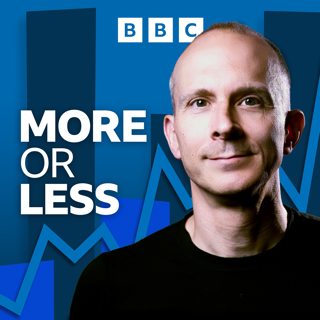
Killed for being female?
Are 100 million women missing from the world? A listener asks More or Less to explore this powerful statement - "More girls were killed in the last 50 years, precisely because they were girls, than men killed in all the wars in the 20th century." The quote is from a book called 'Half the Sky' by Nicholas D. Kristof and Sheryl WuDunn. It has been used in articles, by UN agencies and on TV to highlight the fatal consequences of discrimination of women based on their sex. But is it true? More or Less looks at the evidence. How can we know if a woman is killed precisely because she is a woman? And how do we know how many men have been killed in war?
26 Huhti 20149min

Magic Numbers
Do you have a favourite number - one you love, one you think stands out from all the others? Author Alex Bellos joins us to talk about his quest to find the world's favourite number and discuss whether numbers really can be magical, mystical and memorable, or whether it's all mumbo jumbo. Why are odd numbers so appealing? Which number strikes fear into some people's hearts? And why do lists of questions like these always come in threes? This programme was first broadcast on the BBC World Service.
19 Huhti 20149min

Nigeria - rich or poor?
Nigeria's bureau of statistics has overhauled the way it calculates the country's GDP figures. With GDP now estimated at around $510 billion, it has surpassed South Africa as the continent's largest economy. But just because it has earned this accolade – does that make it one of the richest? Plus was the President of the World Bank, Jim Yong Kim, right to say recently that Nigeria is one of just five countries that together are home to two-thirds of the world’s extreme poor? We sift through the statistics to find out if economic development is benefitting everyone in Nigeria. This programme was first broadcast on the BBC World Service.
12 Huhti 20149min

Freedom in Numbers
How many people in the world live in freedom? The BBC's Freedom 2014 season got Tim Harford and the More or Less team wondering about this. It's actually pretty hard to put a number on freedom, so Tim begins by looking at something more quantifiable: how many people live in a democracy? And are people in democracies happier? Tim Harford looks at the numbers with Simon Baptist from the Economist Intelligence Unit. Plus, he examines the price of a cup of coffee, and whether Ruth Alexander can be persuaded to pay for his. This programme was first broadcast live on the BBC World Service on 01 April 2014 from the Media Café at BBC New Broadcasting House in London.
5 Huhti 20149min

Is London France’s sixth largest city?
Are there really be 300,000 French people in London and would they really want to leave France for the UK anyway? The Mayor of London, British journalists and commentators have trotted out this "fact" a number of times over the last few years to illustrate just how popular the UK’s capital is with its neighbours across the Channel. It appears that Nicolas Sarkozy may have said it as far back as 2008. Wesley Stephenson and Charlotte McDonald brush off their best French to find out the truth. This programme was first broadcast on the BBC World Service.
29 Maalis 20149min

Missing planes
Could Bayesian statistics find Flight MH370 from Kuala Lumpur to Beijing? This niche form of statistical modelling has been used to find everything from submarines to missing people. More or Less explores how it was used to locate the wreckage of Air France flight 447 from Brazil to France which disappeared in 2009. This programme was first broadcast on the BBC World Service.
22 Maalis 20149min

Mailbox edition
Your questions answered - Do the Maasai in Africa number one million? Is it true that a quarter of Americans do not know the Earth goes round the sun? Are half of Tasmanians innumerate and illiterate? Plus, Do the 85 richest people in the world hold the same amount of wealth as the poorest half? This programme was first broadcast on the BBC World Service.
15 Maalis 20149min

WS MoreOrLess: Modern Slavery
Are there 21 million slaves in the world today? Director of 12 Years a Slave, Steve McQueen, made this claim at both the Oscars and the BAFTAs while accepting awards. More or Less looks into the definition of a slave, where they can be found, and explores how they can be counted. This programme was first broadcast on the BBC World Service.
8 Maalis 20149min





















